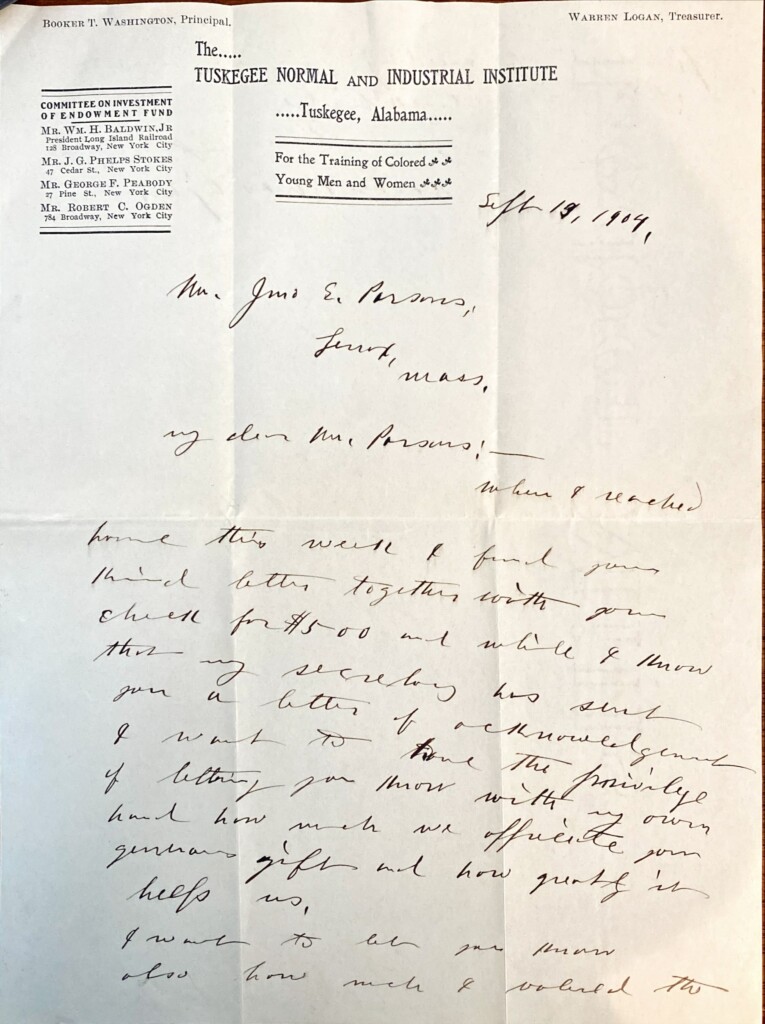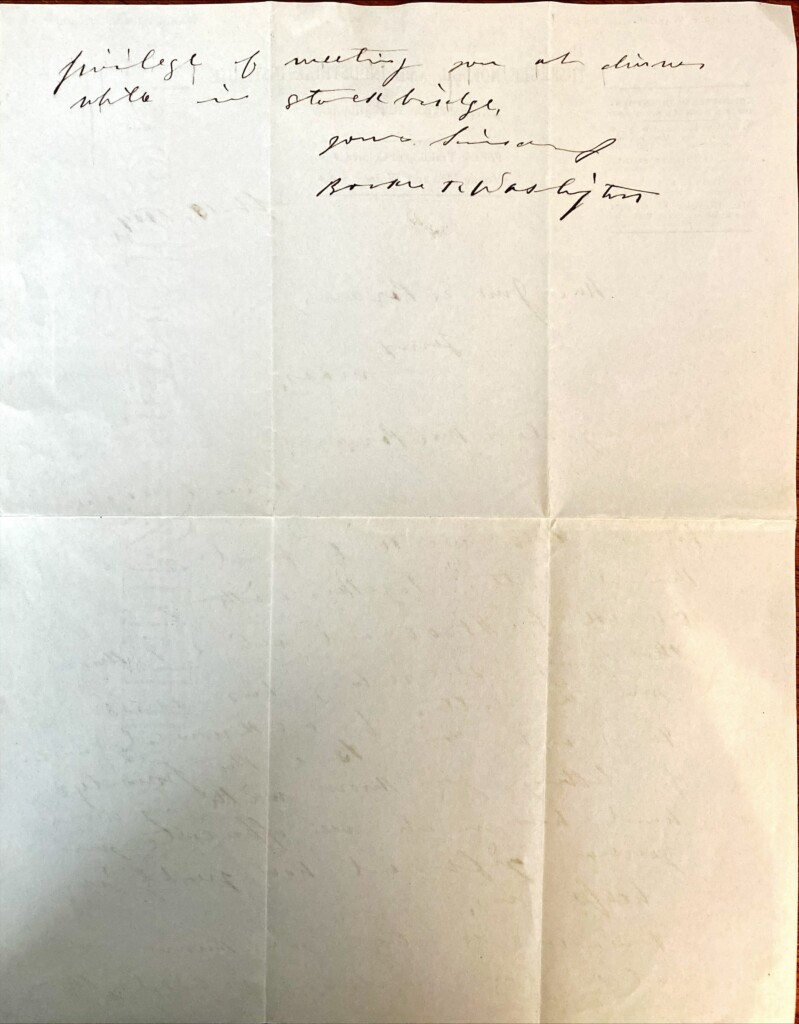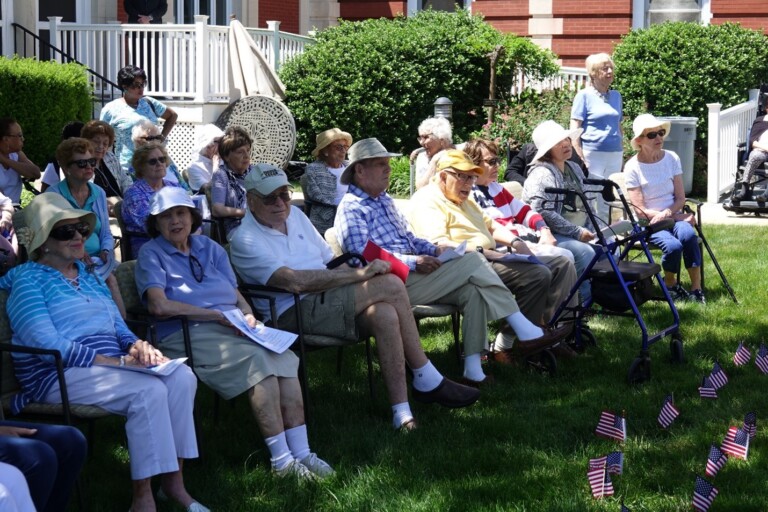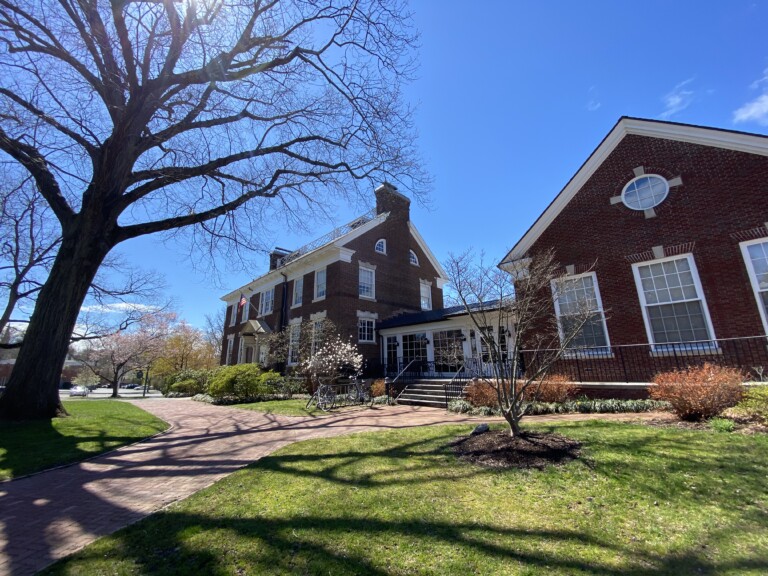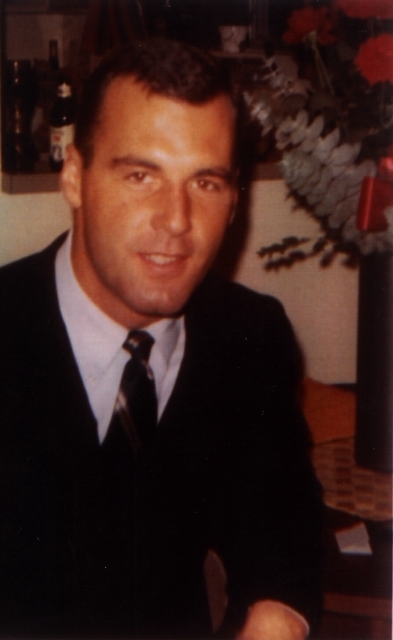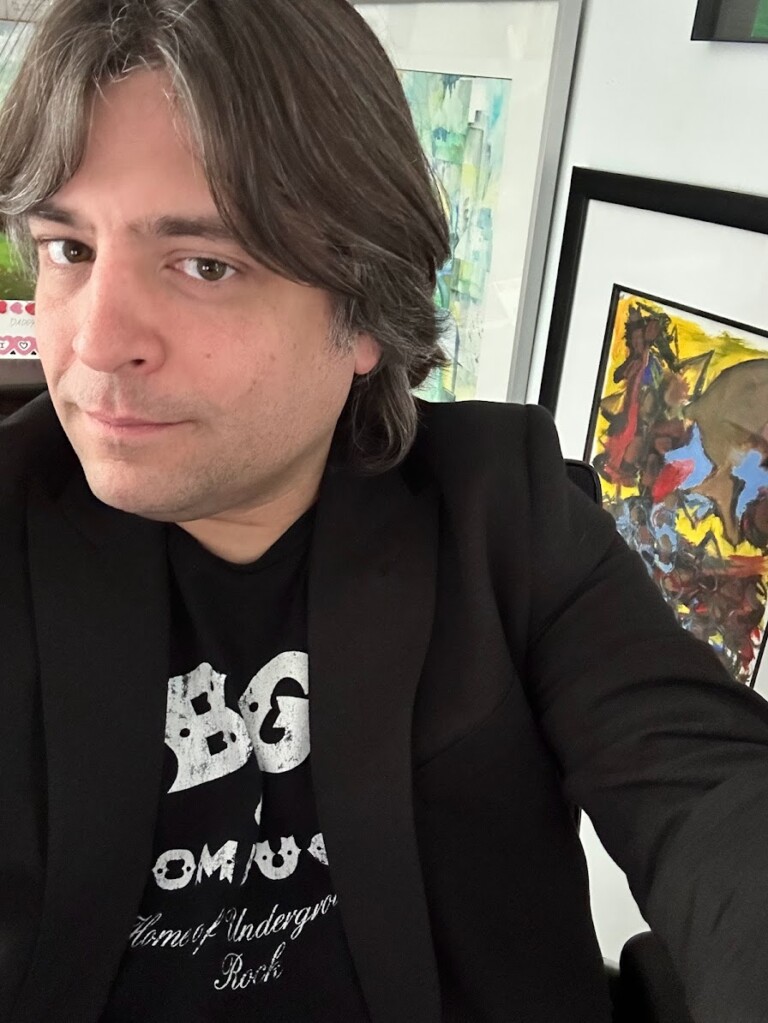Papers from Our Past: A Letter from Booker T. Washington to John E. Parsons, 1904
(PHOTO: A letter sent from Booker T. Washington to John E. Parsons of Rye in 1904.)
MyRye.com is pleased to be working with the Rye Historical Society on Papers from our Past. The Rye Historical Society Archives contains centuries of stories, from everyday life in Rye to significant events in American History.
by Alison Cupp Relyea, Director of Programming and Education for the Rye Historical Society
[letter transcription follows]
The…
TUSKEEGEE NORMAL AND INDUSTRIAL INSTITUTE
Tuskeegee, Alabama
For the Training of Colored
Young Men and Women
September 15, 1904
Mr. John E. Parsons
Lenox, Mass
My dear Mr. Parsons,
When I reached home this week, I found your third letter together with your check for $500 and while I know that my secretary has sent you a letter of acknowledgement, I want to have the privilege of letting you know with my own hand how much we appreciate your generous gift and how greatly it helps us.
I want to let you know also how much I valued the privilege of meeting you at dinner in Stockbridge.
Yours Sincerely,
Booker T. Washington
The Rye Historical Society is launching Papers from Our Past as a way to examine history through primary documents. The Archive collection at Rye Historical Society’s Timothy Knapp House preserves our community archives, a collection of documents and photographs that offer countless stories and clues to the past.
We begin this project with a personal letter from Booker T. Washington to John E. Parsons, honoring Washington’s work as we celebrate Black History Month. As we look closely at this letter, it provides a local lens through which we can better understand our country’s history. Primary documents bring learning to life and can help people of all ages engage in inquiry-based learning.
(PHOTO: The second page of the Booker T. Washington letter.)
A history student may read a chapter in a textbook that explains how Booker T. Washington was born into slavery in 1856 and, among many accomplishments, became a leading advocate for African American education as well as a prominent speaker and writer. With this document, the experience of seeing Booker T. Washington’s handwriting and generating questions from a letter he wrote over a century ago inspires deeper connections, particularly if that student often travels past Parsons Street on the Boston Post Road. In the few minutes it takes to read this short letter, the following questions come to mind:
- Who was Booker T. Washington?
- What is the Tuskegee Normal and Industrial Institute?
- What does it mean – For the Training of Colored Young Men and Women?
- Who is John E. Parsons, and how is he connected to Washington?
- How much is $500 worth in today’s terms?
- Who else was at the dinner in Stockbridge?
- What are the stories of the other people whose names appear on the letterhead?
- Where is Tuskegee, Alabama and where are Stockbridge and Lenox, Massachusetts?
Moving beyond the letter itself, or in answering the questions above, a student may further investigate:
- What was happening in our country in 1904?
- What can we learn from Booker T. Washington’s life in the larger context of Black History during the post-Civil War and Industrial era?
- What is Booker T. Washington’s legacy?
- What did his critics say about his work?
The broad brush answers to these questions are easy to find. In 1865, Booker T. Washington’s family moved to West Virginia where he attended school while also working for a salt miner. He then continued his education at Hampton Normal and Industrial Institute, where he worked full-time to pay tuition and excelled in his studies. He was selected as a commencement speaker, his first public speaking opportunity. After graduating, Washington became a teacher at Hampton.
When Alabama received a grant to establish a school for Black students in 1880, Washington was asked to start it. He and his students built the school – Tuskegee Institute – from the ground up, first acquiring the land and then building the school one building at a time. Washington traveled across the country, networking and raising money and awareness for Tuskegee. In doing so, he also spread a message about the importance of education in the Black community. Washington continued this work for his entire life, networking with influential families including the Parsons family from Rye.
To Learn More about Booker T. Washington and his legacy:
Washington’s 1901 autobiography, Up From Slavery, is available in full online. Ibram X. Kendi and Jason Reynolds analyze Washington’s work in a historical context in their book, Stamped, appropriate for middle school and up. Readers interested in the Tuskegee Airmen who fought in World War II and brought fame to the institute can now watch this new documentary, Tuskegee Airmen: History and Courage. And the value of $500 today? Click here to find out.

